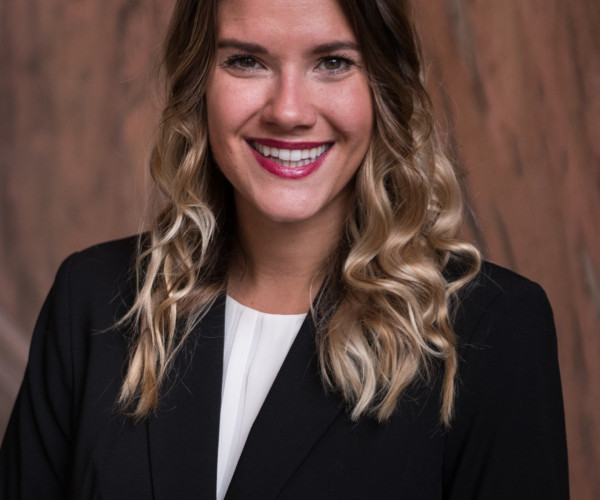Putting a Face to the Rohingya Muslim Refugees
Greta is the Client Services Director of the Penn Law Immigrant Rights Project (PLIRP) and an immigrant rights advocate.
Yesterday was one of those days that reminded me of why I came to law school. I am the Client Services Director of the Penn Law Immigrant Rights Project (PLIRP), a student run pro bono group that works with Philadelphia-based organizations to promote and protect the rights of the immigrant and refugee communities in Philadelphia and throughout the country.
PLIRP and Nationalities Services Center provide several Adjustment of Status clinics at NSC each semester. Adjustment of Status describes the process by which refugees admitted to the United States apply for Legal Permanent Residency, colloquially known as a “green card.” While the process is paperwork intensive—the I-485 is essentially an eighteen-page packet—it also gives volunteers the opportunity to spend several hours with their clients and hear bits and pieces of their client’s story as they gather information for the application.
I was assigned to a family of Rohingya refugees: wife, Noor, husband, Razak, and 4-year old daughter, Ummi (the names have been changed to protect client privacy).
Noor is about my age (mid-twenties) and full of hope and energy. She and her husband started going to English as a Second Language classes back in Indonesia while still being vetted for admission to the United States. Now Noor goes to her ESL classes every day and is already studying for her GED. She helps teach English to her husband after he gets home from a long, tiring day at work. Razak gets up at 4 am every day to work packing produce in New Jersey, without any compliant. He already speaks five languages, and is now learning English (also a little Spanish at work!).
During our conversations I learned that Noor was excited to attend the Women’s March on Saturday –her first protest! She is also teaching herself henna and starting a small business doing henna art at events, weddings, and parties.
Ummi loves preschool, understands four languages, and speaks two: English and Rohingya. She was also able to stay out of trouble for almost four hours while we filled out this application, which as a former pre-school teacher impressed me to no end.
Due to pervasive discrimination against the Rohingya, none of the family has ever been a “citizen” anywhere they have lived. Noor and Razak were born in Myanmar, but Myanmar refuses to extend citizenship to the Rohingya, a Muslim ethnic minority group in Buddhist-majority Myanmar. Their daughter was born in Indonesia, where Noor and Razak were living in 2013, having fled the relentless persecution and inescapable poverty in Myanmar, but Ummi is also stateless since Indonesia does not grant birthright citizenship. [For a concise description of the crisis facing the Rohingya people in Myanmar, see here.]
August of 2017 marked a violent turn in Myanmar. Government forces retaliated against the Rohingya people after the Arakan Rohingya Salvation Army claimed responsibility for a police attack. In just one month, at least 6,700 Rohingya were killed and more than 650,000 fled Myanmar to neighboring countries: Bangladesh, Thailand, Malaysia, and Indonesia to name a few.
Even halfway around the world, the suffering of the Rohingya people weighs heavily in the hearts of Noor and Razak. The family was admitted to the United States in February of 2017. After a life of statelessness, they are hopeful to someday become U.S. citizens. The Green Card is their first step.
Despite their extraordinary journey and awe-inspiring resilience, Noor, Razak, and Ummi resemble the typical, everyday family. Razak is an FC Barcelona fan and is relieved he can still catch games on TV here in Philly. Noor asked if I was on Facebook and wanted to exchange e-mails to keep in touch and show me some pictures of her henna art. Ummi likes Hello Kitty and now that she has friends to play with at pre-school, she gets bored being home with no playmates on the weekends.
I believe that sharing these stories is important: both the remarkable and the mundane. These are exactly the people that we have been told to fear: Muslim refugees. We need to challenge the narrative put forth in the media and political debates about which refugees are “desirable,” and instead put a face to the people who seek asylum in the United States.
During our meeting, Razak tenderly held his sleeping daughter in his arms. He told me seeing his wife was love at first sight. He is already a contributing member of the US economy. Anyone who spent five minutes with Razak would be ashamed of the cruel and flippant conflation of Muslim men and “radical Islamist terrorism” in our society.
The colorful pattern on Noor’s hijab complimented her bright, warm smile. Noor’s entrepreneurship, love of learning, and excitement to exercise her freedom of speech in favor of equal rights for women fly in the face of stereotypes about Muslim women.
I cannot imagine anyone more deserving of peace, security, freedom of religion and expression, and CITIZENSHIP than these three people. The United States would be incredibly lucky to call them U.S. citizens and I am absolutely honored to have been a part of their journey.





